Exploring The Intersection of Law, AI, and Web3: A Philosophical Journey
At ArbTech, we pride ourselves on providing practical insights into the ever-evolving world of technology and dispute resolution. Today, however, let's embark on a more philosophical journey, one that delves into the profound questions surrounding the rule of law in the age of Web3 and artificial intelligence (AI). These aren't just abstract concepts—they're vital considerations with real-world implications, particularly for international arbitration.
Setting the Stage: A New Era of Dispute Resolution
Imagine a world where blockchain, the metaverse, and AI are not just buzzwords but integral parts of our daily lives. This is not a distant future but a reality that's rapidly unfolding. As co-founder of ArbTech, I've had the privilege of contributing to an upcoming book titled Blockchain, the Metaverse, and AI in Arbitration: Navigating the New Future of Dispute Resolution, set to be published by Radboud University Press. This book is a treasure trove of ideas from a recent conference, exploring how these groundbreaking technologies intersect with international arbitration.
In my preface, I discuss a critical issue: the relationship between technological advancements and the rule of law. International arbitration has traditionally been a stalwart of legal governance, ensuring fairness and justice in disputes. But as we integrate technologies like AI into our legal systems, we must ask ourselves—how does the rule of law adapt?
The Human Touch in the Age of Machines
The rule of law is more than just a set of rules; it's a philosophy that embodies human dignity, agency, and the desire for thoughtful governance. This idea is beautifully captured in the work of Professor Jeremy Waldron, who argues that people want to be governed thoughtfully and reasonably, rather than by rigid, mechanical systems. The question then becomes: can we maintain this human-centric approach in a world increasingly dominated by AI?
Generative AI and large language models, like those used in natural language processing, are a marvel of modern technology. They can hold conversations, answer questions, and even mimic human understanding. Yet, as convincing as they may seem, these systems are far from possessing true human intelligence or empathy. This creates a paradox—while AI can simulate human-like interactions, it lacks the depth of human judgment and understanding.
The Growing Role of AI in Decision-Making
As AI becomes more integrated into our lives, there's a growing concern about the displacement of human judgment. This isn't just about machines taking over jobs; it's about the delegation of critical decision-making processes to algorithms. In international arbitration, where the rule of law is paramount, this raises significant ethical and practical questions.
For instance, traditional arbitration values procedural due process, the independence of arbitrators, and the integrity of the legal profession. But in the fast-paced world of Web3, where transactions are instantaneous and decentralized, there's a temptation to streamline dispute resolution using smart contracts and AI. While these technologies can make the process more efficient and accessible, they also risk sidelining the thoughtful application of the rule of law.
The Future of Justice: Balancing Speed and Thoughtfulness
So, what does justice look like in a Web3 world? Can we find a balance between the rapid, automated nature of blockchain-based systems and the deliberate, human-centric approach of traditional legal frameworks? These are not just theoretical questions but practical challenges we must address as we navigate this brave new world.
One thing is clear: if we want the rule of law to continue to play a meaningful role in society, the "last kilometer" of dispute resolution must remain human. Emerging regulations, like the EU's AI Act, aim to provide a framework that balances innovation with accountability. The real challenge for the future of dispute resolution will be to develop systems that deliver swift, accurate justice while preserving the core values of human dignity and thoughtful governance.
The Human Element in a Digital World
As we stand at the crossroads of technology and the rule of law, it's crucial to remember that behind every algorithm and smart contract, there are human beings. Our role, as custodians of justice and fairness, is to ensure that the march of technology enhances, rather than diminishes, our shared humanity.
As we continue to push the boundaries of what's possible with technology, let's not forget the importance of maintaining a thoughtful, human-centric approach to justice and governance. After all, the future of dispute resolution is not just about faster outcomes—it's about fairer ones.
